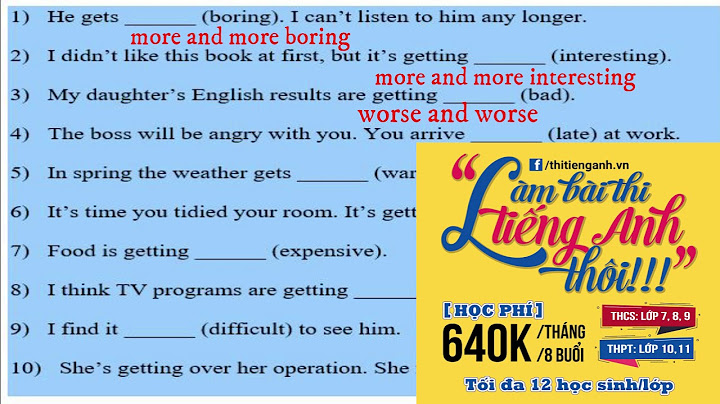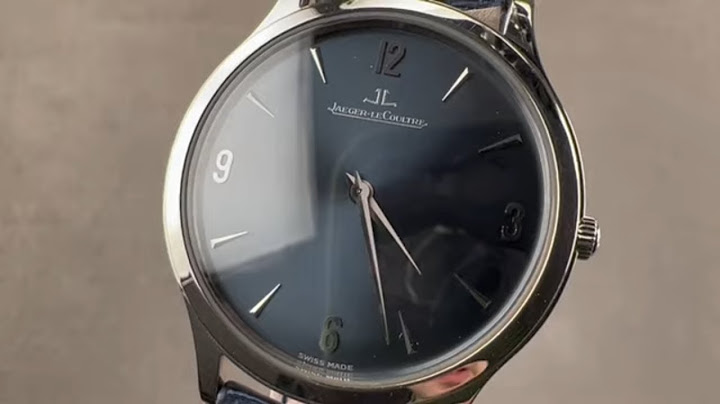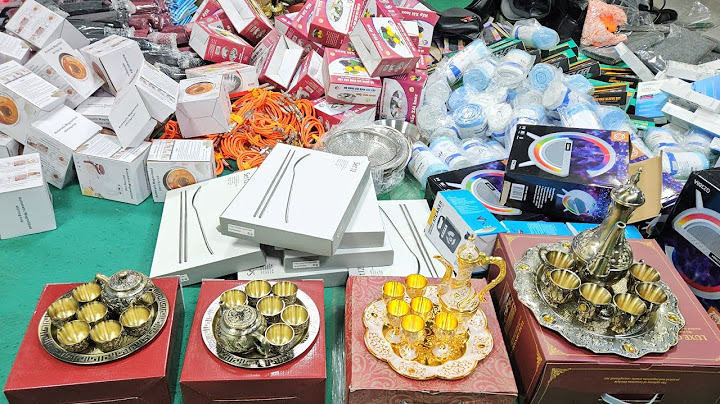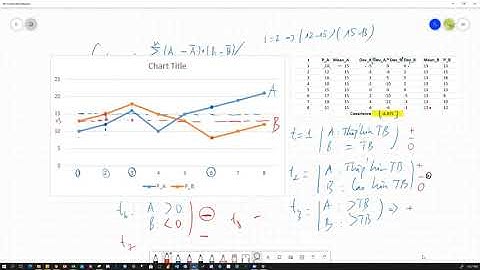Mark the letter A, B, C, or D on your answer sheet to indicate the correct answer to each of the following questions. Question 1: After he his homework, he went straight to bed. A. has finished B. was finished C. finished D. had finished Question 2: The girls and the flowers he painted were vivid. A. who B. which C. that D. whose Question 3: These chairs are better than the others. A. as B. very C. much D. either Question 4: Malaria is a disease by the anopheles. A. transmit B. transmitting C. is transmitted D. transmitted Question 5: Jack has two elder brothers, are famous actors. A. both of which B. both of who C. both of whom D. both of them Question 6: Ceylon is the South of India. A. to B. in C. at D. below Question 7: Today, women are increasingly involved politics. A. of B. in C. from D. with Question 8: Let’s go to the library,? A. would we B. will we C. should we D. shall we Question 9: Not until now popularly recognized that man is destroying the environment. A. has it become B. does it become C. it has become D. it becomes Question 10: So little about mathematics that the lecture was completely beyond me. A. did I know B. I have known C. do I know D. knew Question 11: In life, can make a mistake; we’re all human. A. anyone B. someone C. some people D. not anybody (Đề số 1 - Môn Tiếng Anh - Vũ Mai Phương - Moon) Question 12: I decided to go to the library as soon as I. A. would finish what I did B. finished what I did C. finished what I was doing D. finish what I did Question 13: It seems that you have to cope with the stresses and strains of the job,? A. doesn’t it B. don’t you C. isn’t it D. haven’t you Question 14: Most people prefer at home rather than out on rainy days. A. stay - go B. staying - go C. to stay - go D. staying – going Question 15: You can go to the party tonight you are sober when you come home. - as long as B. as far as C. as soon as D. as well as Question 16: wait for no man. A. Tide and fire B. Time and tide C. Time and fire D. Tide and time Question 17: I usually buy my clothes. It’s cheaper than going to the dress maker. A. on the house B. off the peg C. in public D. on the shelf Question 18: In most developed countries, up to 50% of population enters higher education at some time in their lives. A. Ø / Ø B. the / Ø C. Ø / the D. the / a Question 19: Marie Curie, , was awarded a Nobel Prize for her work. A. was the scientist who discovered radium B. the scientist who discovered radium C. whose scientific discovery of radium D. whose scientific discovery of radium Question 20: Since Elizabeth Barrett Browning’s father never approved of Robert Browning, the couple eloped to Italy where they lived and wrote. A. her to marry B. her marrying to C. her getting married to D. her to getting married (Đề số 2 - Môn Tiếng Anh - Vũ Mai Phương - Moon) Question 21: He on his computer for more than two hours when he decided to stop for a rest. A. has worked B. has been working C. was working D. had been working Question 22: a famous personality has its advantages and its disadvantages. A. To be B. Be C. Been D. Being Question 23: he took off his dark glasses, I recognized him. A. Whenever B. As soon as C. Then D. While Question 24: I’d rather you for me here. A. wait B. to wait C. waiting D. waited Question 25: His father is a bank manager, makes him easy to have a good job. A. whom B. who C. that D. which Question 26: Maria has only one eye, she lost 3 years ago after falling on some broken glass. A. the other B. other C. other ones D. another one Question 27: Helen has just bought. A. two new black wool scarves B. some new black wool two scarves C. two scarves new wool black D. two black wool new scarves Question 28: When we visit South, we stopped at Civil War Museum in Atlanta. A. the, the, O B. the, O, O C. the, the, the D. O, the, O
- little knowing B. to know little C. little known D. to be little known Question 44. I visited last year, is a nice city. A. New York that B. New York, where C. New York, which D. New York, in which Question 45. He to the doctor after the accident, but he continued to play instead. A. should have gone B. must have gone C. couldn’t go D. didn’t have to go Question 46. It was a bit embarrassing when the teacher caught us A. cheat B. cheating C. to cheating D. to cheat (Đề số 5 - Môn Tiếng Anh - Vũ Mai Phương – Ngoaingu24h) Question 47. Next week when there a full moon, the ocean tides will be higher. A. will be B. will have been C. is being D. is Question 48. the light rain, the baseball game will not be cancelled unless the other team concedes. A. However B. Although C. In spite D. Despite Question 49. My director is angry with me. I didn’t do all the work I last week. A. should have done B. may have done C. needn’t have done D. must have done Question 50. Michael looked upset and surprised when by his mother today. A. scolding B. to scold C. having scolded D. scolded Question 51. Our father suggested to Da Nang for this summer holiday. A. to going B. going C. go D. to go Question 52. she was under the weather, I wouldn’t have asked her to join us. A. If had I known B. If I knew C. If I hadn’t known D. Had I known Question 53. of the hundred members of the club was given a souvenir. A. All B. Each C. Either D. Neither Question 54. Marie Curie was the first and only woman two Nobel Prizes. A. who win B. that wins C. to have won D. to be won (Đề số 6 - Môn Tiếng Anh - Vũ Mai Phương – Ngoaingu24h) Question 55: Hair, fingernails, and toenails from the skin A. forming B. forms C. formed D. are formed Question 56: It's amazing how Jenny acts as though she and Darren serious problems at the moment. A. aren't having B. weren't having C. hadn't had D. hadn't been having Question 57: Drying flowers is the best way them. A. preserved B. by preserving C. preserve D. to preserve
Question 58: charge for excess luggage is £10 kilo. A. The; an; a B. The; 0; a C. 0; 0; a D. 0; an; the Question 59: Everything is you. I cannot make my mind yet. A. out off/ on B. up to/ up C. away from/ for D. on for/ off Question 60: Your father is very kind David. A. with B. to C. for D. of Question 61: Jane only makes cakes with the butter. A. best unsalted Danish B. unsalted best Danish C. Danish best unsalted D. best Danish unsalted Question 62: warfare duties primarily to males' was imperative when combat was hand- to-hand. A. Assigning B. Assigned C. They who assigned D. That they were assigning (Đề số 1 – Sách tham khảo - Vũ Mai Phương ) Question 63: Garderners transplant bushes and flowers by moving them from one place to. A. other B. others C. another D. each other Question 64: To bake fish, butter and place it in a generously greased rectangular pan. A. it brushes with B. with its brushes C. brushing it with D. brush it with Question 65: The risks of developing cancer can by not smoking and by drinking in moderation. A. be significantly reduced B. to be significantly reduced C. significantly reduce D. to reduce significantly Question 66: The mass of the sun is about 750 times that of all the planets combined. A. the greatest B. as great as C. greatly D. greater Question 67: , let me know. A. Do you hear anything B. Hear anything C. Should you hear anything D. Hearing anything Question 68: Those flowers are everywhere is a sign of spring. A. going over B. taking over C. coming out D. breaking out Question 69: Don't use the milk I bought last month. It's date now. she decide to leave me. Question 81: I will be kind to her she dicide to leave me. A. in order that B. lest C. whereas D. in case Question 82: - "How long have you been building this bridge?" -"This bridge for two years." A. has built B. has been being built C. has been building D. has been built Question 83: "Don't forget to take your shoes when you are in Japanese house." A. off B. apart C. in D. up Question 84: Helen has gone out and she will not be till midnight. A. off B. along C. back D. away (Đề số 4 – Sách tham khảo - Vũ Mai Phương ) Question 85: In the 19th century new methods of transportation, in particular canals and railways, for. transporting goods from places to places. A. are developed B. were developed C. have been developed D. had been developed Question 86: The number of students wanting to go to St. Andrew’s since Prince William of Wales decided to go there. A. increase dramatically B. dramatically increased C. has dramatically increased D. had dramatically increased Question 87: Ton That Tung, a pioneer in liver surgery, invented a technique, named after him, for operating the liver. A. on B. about C. for D. with Question 88: The Greensby Tournament in Florida gives the boys an opportunity to play against teams from all over the country. A. a B. an C. the D. no article Question 89: Not only late, but also he forgot his textbooks. A. did he turn up B. he did turn up C. turn up did he D. up did he turn Question 90: That’s the trouble with the night shift. It your private life too much. A. breaks in B. breaks into C. breaks through D. breaks up (Đề số 5 – Sách tham khảo - Vũ Mai Phương ) Question 91: Research has shown that students, especially those in high schools and universities, can learn they do from instructions and textbooks. A. so many that B. as much as C. as many as D. so much that Question 92: research team is an effective way to prepare for class preparation of social studies such as history, geography, literature and economics. A. Form B. Forms C. Forming D. Formed Question 93: He will be very upset if you his offer of help. A. turn from B. turn against C. turn down D. turn away Question 94: in astronomy, the discovery of Uranus was by accident. A. Alike many finds B. It was like many finds C. Many alike finds D. Like many Question 95: Most countries spend a large portion of their budgets for their citizens. A. education provided B. provide education C. to educational provides D. providing education Question 96: Renoir is one of the most popular French impressionist painters. His paintings masterpieces all over the world. A. have considered B. are considering C. considered D. are considered Question 97: There will be a cherry blossom festival at the park tomorrow; you spend your day there if you have nothing to do. A. most B. will C. should D. could Question 98: Whether it's English mathematics, at Exeter we call our classes Harkness classes and our teachers Harkness teachers. A. or B. and C. but D. so Question 99: The article analyzes the impact of the tax base real estate prices and sales. A. in B. on C. at D. with (Đề số 6 – Sách tham khảo - Vũ Mai Phương ) Question 100: Although thunder and lightning are produced at the same time, light waves travel faster , so we see the lightening before we hear the thunder. A. than sound waves do B. than sound waves are C. do sound waves D. sound waves Question 111: the United States consists of many different immigrant groups, many sociologists believe there is a distinct national character. A. Even though B. Despite C. Whether D. In spite of Question 112: Our village had money available for education that the schools had to close. A. so little B. such little C. so much D. such much Question 113: Experts feel that they are related to the deep wishes and fears of the dreamer. A. study dreams B. who dream study C. who study dreams D. whose dreams study Question 114: We all seem to have a different opinion, so let's let Joey decide,? A. will we B. do we C. shall we D. are we (Đề số 8– Sách tham khảo - Vũ Mai Phương ) Question 115: She the station every day but then she suddenly decided to walk instead. A. used to B. was used to C. had used to D. didn't used to Question 116: Seldom far enough north to disturb South Pacific shipping lanes. A. Antarctic icebergs will move B. will Antarctic icebergs move C. will move Antarctic icebergs D. move Antarctic icebergs will Question 117: If I following that other car too closely, I would have been able to stop in the time instead of running into it. A. wasn't B. weren't C. hadn't been D. would have been Question 118: Fort Niagara was built by the French in 1762 on land the Seneca Indians. A. they buy from B. bought from C. buying from D. was bought from Question 119: A quick look would reveal that France has twice computers. A. more televisions than B. as many televisions as C. as many as televisions D. many as televisions as Question 120: I've never had the slightest disagreement him anything. A. with / about B. with / in C. on / about D. on / at (Đề số 9– Sách tham khảo - Vũ Mai Phương ) Question 121: Jane only makes cakes with the butter. A. best unsalted Danish B. unsalted best Danish C. Danish best unsalted - best Danish unsalted Question 122: Have I told you about the government is dealing? A. the problem with that B. the problem with which C. the problem D. the problem that Question 123: You have to take the full course of your antibiotics even if you feel better, _____ your illness will simply return. A. whereas B. such as C. so that D. otherwise Question 124: Young people have become increasingly committed social activities. A. of B. in C. to D. at Question 125: Martin Luther King Jr, after his father's assassination, the mission of his father to fight for the rights of blacks in America and achieved some notable success in the 1970s. A. continuing B. and continues C. continue D. continued Question 126: The suspect confessed. A. the police his crime B. his crime C. his crime the police D. his crime to the police Question 127: electric eels send a series of blips of electricity into the water around them and they can detect the pattern of electricity of the water changes. A. Every B. Of each C. All D. All of Question 128: When I was turning out my cupboard I this photograph of my uncle. A. came over B. came round C. came across D. came into (Đề số 10– Sách tham khảo - Vũ Mai Phương ) Question 129: We bought some. A. German lovely old glasses C. old lovely German glasses B. German old lovely glasses D. lovely old German glasses Question 130: Global warming will result crop failures and famines. A. for B. of C. in D. with Question 131: , they slept soundly. A. Hot though was the night air B. Hot though the night air was C. Hot although the night air was D. Hot the night air as was Question 132: Never before in an earnest attempt to resolve their differences.
- the police his crime B. at his crime C. his crime the police D. his crime to the police Question 143: His advice, I would never have got the job. A. except B. but for C. apart from D. as for Question 144: More than a mile of roadway has been blocked with trees, stones and other debris, the explosion. A. causing B. caused by C. which caused by D. which caused Question 145: I the bell three times when he answered the door. A. would ring B. rang C. had rung D. was ringing Question 146: These facts may be familiar you. A. to B. with C. in D. at (Đề số 13– Sách tham khảo - Vũ Mai Phương ) Question 147: The accident was the mistake of the driver. A. which causes many people to die B. causing many people to die C. caused great human loss D. to cause many people die Question 148: All right, Johnny, it’s time you to bed. A. are going to go B. will be going C. would go D. went Question 149: There was fuel in the car. Therefore, we had to stop midway to fill some. A. a few B. little C. few D. a little Question 150: My uncle wishes his son much time when he grows up. A. hasn't wasted B. hadn't wasted C. wouldn't waste D. didn't waste Question 151: My relative you met yesterday is an engineer. A. whose B. whom C. that D. B and C are correct Question 152: In future, cars will still be us, but, instead of petrol, they will run anything from electricity to methane gas. A. for/ by B. for/ on C. with/ by D. with/ on (Đề số 14– Sách tham khảo - Vũ Mai Phương ) Question 153: Charles was wearing at the party.
- a tie yellow silk funny B. very funny wide yellow silk tie C. a yellow silk funny tie D. a funny wide yellow silk tie Question 154: It was furniture that I didn't buy it. A. so expensive B. such expensive C. such an expensive D. a so expensive Question 155: Only when you grow up how to organize things more neatly. A. do you know B. you will know C. you know D. will you know Question 156: I came on Monday at ten o'clock the morning. A. at B. on C. in D. under Question 157: It would have been a much more serious accident fast at the time. A. he drove C. had he been driving B. was he driving D. he had driven Question 158: Michelle tried hard, she didn't manage to win the competition. A. No matter how B. Even though C. In spite of D. Nevertheless (Đề số 15– Sách tham khảo - Vũ Mai Phương ) ĐÁP ÁN BÀI TẬP NGỮ PHÁP Question 1. Chọn đáp án D
Giải thích: Quá khứ hoàn thành miêu tả một sự việc xảy ra trước một sự việc khác trong quá khứ. Trong Question trên, làm xong bài tập rồi mới đi ngủ; mà hành động đi ngủ lại xảy ra ở thì quá khứ đơn => hành động làm xong bài tập sẽ ở thì quá khứ hoàn thành. Dịch nghĩa: Sau khi anh ấy làm xong hết bài tập về nhà, anh ấy lên thẳng giường đi ngủ. Question 2. Chọn đáp án C Giải thích: Thay thế cho cả người và vật “the girls and flowers” thì ta phải dùng “that”. Thay thế cho chủ ngữ chỉ người => who Thay thế cho chủ ngữ chỉ vật => which Đằng sau mệnh đề quan hệ cần điền là danh từ => whose Dịch nghĩa: Những cô gái và bông hoa mà anh ấy vẽ rất sống động. Question 3. Chọn đáp án C much/far + tính từ so sánh hơn mang tính nhấn mạnh hơn dịch: những chiếc ghế này tốt hơn nhiều so với những chiếc ghế khác A: anyone: bất cứ ai B: someone: ai đó C: some people: một vài người D: not anybody: không phải bất cứ ai Dịch nghĩa: Trong cuộc sống, bất cứ ai cũng có thể phạm sai lầm, vì chúng ta là con người. Question 12. Chọn đáp án C Giải thích: as soon as: ngay sau khi “decided” => thì quá khứ => loại đáp án D đằng sau “as soon as” không dùng với thì tương lai => loại đáp án A - Cách dùng “as soon as”
- Chúng ta sử dụng “as soon as” để diễn tả một hành động mà đã được thực hiện ngay tức thì sau một hành động khác trong quá khứ
Ex: I called my dad as soon as I arrived to Hanoi (Tôi đã gọi cho bố mình ngay sau khi tới Hà Nội) - Chúng ta sử dụng “as soon as” để diễn tả một hành động mà đã được thực hiện ngay tức thì sau một hành động khác trong tương lai Ex: I’ll call you as soon as I get home. (Tôi sẽ gọi cho bạn ngay khi tôi về đến nhà) Dịch nghĩa: Tôi quyết định đi tới thư viện ngay sau khi tôi hoàn thành những việc tôi đang làm. Question 13. Chọn đáp án B Giải thích: Question đầu có “It seems that + mệnh đề” => lấy mệnh đề làm Question hỏi đuôi Eg: It seems that you are right, aren’t you? Trong các trường hợp khác, thông thường vế trước dùng khẳng định thì vế sau phủ định (và ngược lại); và vế trước dùng thì gì thì vế sau dùng thì đó. Ex: We have done all the tests, haven’t we? Dịch nghĩa: Dường như bạn đang phải đối mặt với nhiều áp lực từ công việc phải không? Question 14. Chọn đáp án C Giải thích: prefer to V rather than V: thích cái gì hơn cái gì
- NOTE:
- Dùng “Prefer to (do)” hoặc “Prefer – Ving” để diễn tả sở thích, thích điều gì đó hơn.
- Khi có sự so sánh giữa hai hành động hoặc hai danh từ (thích cái gì hơn cái gì): S + PREFER something TO something.
S + PREFER DOING something TO DOING something. S + PREFER TO DO something RATHER THAN (DO) something. Dịch nghĩa: Hầu hết mọi ngươi thích ở nhà hơn là ra đường vào ngày mưa. Question 15. Chọn đáp án A Giải thích: A. miễn là B. Theo như ... C. ngay sau khi D. cũng như Dịch nghĩa: Bạn có thể đi đến bữa tiệc tối nay, miễn là bạn tỉnh táo lúc trở về nhà Question 16. Chọn đáp án B Giải thích: đây là thành ngữ Dịch nghĩa: Thời gian không chờ đợi ai. Question 17. Chọn đáp án B Giải thích: A. ở trong nhà B. quần áo may sẵn, với kích cỡ trung bình C. trước công chúng D. ở trên giá Dịch nghĩa: Tôi thường mua quần áo may sẵn. Chúng rẻ hơn đi may ở chỗ thợ may Question 18. Chọn đáp án C - most + N hoặc most of the + N (có “of” thì có “the”, không “of” không “the”) => loại B và D
- “population” là dân số. Đây là N đã xác định vì Question này nói đến dân số ở các nước đã phát triển => “the population”
Dịch nghĩa: Ở hầu hết các nước đã phát triển, khoảng 50% dân số được hưởng nền giáo dục tiên tiến tại một thời điểm nào đó trong cuộc đời họ. Question 19. Chọn đáp án B Giải thích: ở đây cần mệnh đề quan hệ, bổ sung nghĩa cho Marie Curie => loại A vì sai ở “was” Nếu dùng C và D thì không được có dấy phẩy => loại Question 27. Chọn đáp án A Giải thích: đây là trật tự sắp xếp tính từ trong tiếng Anh. Chỉ cần nhớ cụm viết tắt: “OpSACOMP”, trong đó: - Opinion – tính từ chỉ quan điểm, sự đánh giá. Ví dụ: beautiful, wonderful, terrible...
- Size – tính từ chỉ kích cỡ. Ví dụ: big, small, long, short, tall...
- Age – tính từ chỉ độ tuổi. Ví dụ: old, young, old, new...
- Color – tính từ chỉ màu sắc. Ví dụ: orange, yellow, light blue, dark brown ....
- Origin – tính từ chỉ nguồn gốc, xuất xứ. Ví dụ: Japanese,American, British,Vietnamese...
- Material – tính từ chỉ chất liệu. Ví dụ: stone, plastic, leather, steel, silk...
- Purpose – tính từ chỉ mục đích, tác dụng. => TWO - chỉ số lượng; NEW - độ tuổi (sự mới hay cũ); BLACK - màu sắc; WOOL (len) - chất liệu; SCARVES (khăn quàng cổ) - Danh từ đứng sau tính từ. Dịch nghĩa: Helen vừa mua hai cái khăn quàng cổ mới, màu đen và bằng len. Question 28. Chọn đáp án A Giải thích: South là miền Nam => dùng The; “Civil War Museum” là tên riêng => dùng The; Atlanta là tên thành phố => không dùng mạo từ. *Note: "A" và "An" dùng chỉ những sự vật, hiện tượng cụ thể người nghe không biết, "The" chỉ sự việc cả người nói và người nghe đều biết. Mạo từ “The”
- Dùng “The” khi nói về một vật riêng hoặc một người mà cả người nghe và người nói đều biết.
- “The” cũng được dùng để nói về một vật thể hoặc địa điểm đặc biệt, duy nhất.
- Trong một số trường hợp, “The” có thể dùng với danh từ số ít và số nhiều.
- “The” đứng trước danh từ, xác định bằng một cụm từ hoặc một mệnh đề.
- Mạo từ “The” đứng trước từ chỉ thứ tự của sự việc như "First" (thứ nhất), "Second" (thứ nhì), "only" (duy nhất)
- "The" + Danh từ số ít tượng trưng cho một nhóm động vật, một loài hoặc đồ vật
- "The" dùng với một thành viên của một nhóm người nhất định
- Mạo từ "The" đứng trước tính từ chỉ một nhóm người, một tầng lớp trong xã hội
- Dùng trước những danh từ riêng chỉ biển, sông, quần đảo, dãy núi, tên gọi số nhiều của các nước, sa mạc, miền
- "The" + tên họ (dạng số nhiều) chỉ gia tộc... Mạo từ “A” và “An”
- “A” và “An” có cách sử dụng gần giống nhau. Tuy nhiên, dùng “An” khi chữ đằng sau bắt đầu bằng nguyên âm (a, o, u e,i) và dùng “A” khi chữ đằng sau bắt đầu bằng các phụ âm còn lại.
- Từ “A” và “An” dùng khi danh từ người nói nhắc đến không đặc biệt. - “A” và “An” dùng để giới thiệu về thứ lần đầu tiên nhắc tới với người nghe (người nghe chưa biết gì về thứ này). Sau khi giới thiệu, người nói có thể dùng mạo từ “The” khi nhắc tới vật đó.
- Trong một số trường hợp, “A”, “An” được dùng với danh từ số ít Không sử dụng mạo từ
- Mạo từ không được sử dụng khi nói về sự việc chung hoặc nhắc tới ví dụ.
- Một số tên quốc gia, thành phố, các bang không dùng mạo từ đứng trước. (Trừ trường hợp của The Philippines, The United Kingdom, The United States of America.)
- Tên các môn học không sử dụng mạo từ
- Trước tên quốc gia, châu lục, núi, hồ, đường.
- Sau tính từ sở hữu hoặc sau danh từ ở sở hữu cách
- Trước tên gọi các bữa ăn.
- Trước các tước hiệu
- Trong một số trường hợp đặc biệt: ví dụ: In spring/in autumn (vào mùa xuân/mùa thu), last night (đêm qua), next year (năm tới), from beginning to end (từ đầu tới cuối), from left to right (từ trái sang phải). Dịch nghĩa: Khi chúng tôi đi tới thăm miền Nam, chúng tôi dừng lại ở Bảo tàng Nội chiến ở Atlanta. Question 29. Chọn đáp án C As if: như là, như thể What if: điều gì nếu... Even if: kể cả (như thế), dù Only if ~ I wish Dịch Question: Ngay cả khi chúng ta hiểu lý do của anh ta, chúng ta không thể chấp nhận hành vi của anh ta được
Question 30. Chọn đáp án B Kỹ năng: Ngữ pháp Giải thích: Đáp án B: have gone to Dịch nghĩa: Gia đình Smiths đã đến Rome vào cuối tuần. Question 31. Chọn đáp án B Kỹ năng: Ngữ pháp Giải thích: Đáp án B: luôn luôn Các đáp án khác: |





















